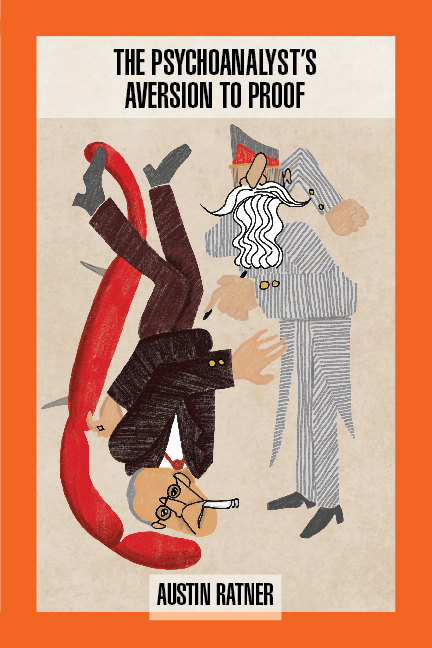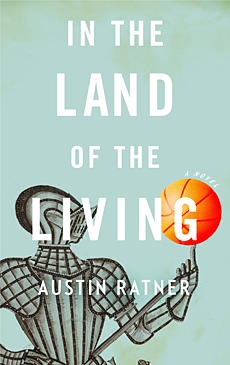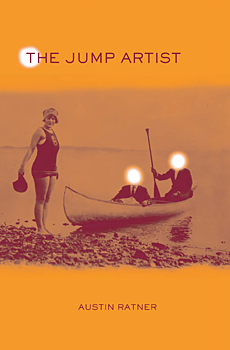
The Psychoanalyst’s Aversion to Proof
A clear and engaging call-to-arms to Freudians everywhere and a fresh diagnosis of the major problem confronting psychoanalysis today, The Psychoanalyst’s Aversion to Proof presents exciting new ideas that could help psychoanalysis reclaim its eminent place among the mental sciences. By showing how and why Freudians have avoided proving their theories, The Psychoanalyst’s Aversion to Proof charts a new future of growth and engagement in which psychoanalysis fulfills its promise: to rescue humanity from its own irrationality.
“An important, serious and timely treatment of the major problem confronting psychoanalysis today, The Psychoanalyst’s Aversion to Proof could help determine the future direction of American psychiatry and mental science. The book is compellingly readable and direct but simultaneously scholarly and edifying — impeccably well researched in relation to the historical facts it reviews and the philosophical arguments it marshals — and it culminates in impressively realistic conclusions and practical recommendations.”
“This ground-breaking book is one of the most creative and valuable contributions to psychoanalysis’s epistemology. Ratner’s bold thesis, that Freud and the entire psychoanalytic community had a genuine aversion to proving psychoanalytic ideas, opens new ways of understanding the obstacles of transmitting psychoanalytic knowledge to the public. The Psychoanalyst’s Aversion to Proof convincingly demonstrates in fresh and systematic ways that validating psychoanalysis for the world is possible if analysts can recover their sense of optimism, curiosity, and ambition. This book is a remarkable achievement of profound scholarship that should be read by every clinician.”
“In this perspicacious and important book, Austin Ratner gives psychoanalysis a wake-up call. Just like Freud who was ambivalent about facing his public critics and justifying the scientific validity of his theories, psychoanalysis as a discipline has unfortunately adopted an avoidant and dismissive resistance to having to defend its viability as a human science and offer proof to skeptical audiences. This lingering institutional attitude of mistrust and indifference to public opinion has contributed to obduracy, insularity, and hubris that threatens the significance and status of the discipline. Ratner challenges us to lift our heads out of the sand, join the game, and begin to offer proof in order to reclaim our relevance today.”

In the Land of the Living
A Barnes and Noble “What to Read Next” Selection and an iTunes Book of the Month – A dazzling story of fathers, sons, and brothers – bound by love, divided by history. Part family saga, part coming-of-age story, In the Land of the Living is a kinetic, fresh, bawdy yet earnest shot to the heart of a novel about coping with death, and figuring out how and why to live.
“Ratner casts Auberon’s struggle in mythic terms, mixing Isaac Babel with Chaucerian adventure as he makes his way into the gentrified world of American success. Four stars.”
“Hilarious and brilliant … [In the Land of the Living] made me laugh like I did when I was reading Goodbye, Columbus for the first time. A combination of Beckett and Mel Brooks, it defies any reviewer’s abilities to describe … an exuberant, terrific book.”
“Austin Ratner’s In the Land of the Living made me laugh out loud, and it also left me deeply moved. Part vaudeville and part tragic opera, it dances and rages with uncommon wisdom, conveying the pain, comedy, and beauty of familial love across the generations.”
“Accomplished and moving… In the Land of the Living pulses with fury and grief… This novel is a study of bereavement and anger and of the complex, shifting seam between them… Between these vivid frenzies are flashbacks that introduce a tender, vulnerable voice. In these, Ratner captures 3-year-old Leo with uncanny precision, and his childhood sorrow is convincing and devastating… Sad and clever, resonant with loss and grief.”
“In the Land of the Living is as accomplished as it is ambitious, as mythic as it is intimate, and as permeated with comedy as it is with pathos. By telling the singular story of a father and a son, Ratner gives us a timeless tale about the weight of expectations, the long reach of trauma, and the power of family to both shatter and rebuild us.”
“[Leo Auberon] has the essential elements of a great Salinger-esque hero—bright, precocious, haunted by family.”
“Compelling … convincing and raw.”
“Austin Ratner’s imaginatively drawn young protagonist is caught in a classic Freudian triangle that creatively bears the imprint of Henry Roth’s Call it Sleep, Isaac Rosenfeld’s Passage from Home and Philip Roth’s Indignation… The initial part of the story unfolds in 100 tightly and compellingly written pages, which could easily stand alone as a brilliant novella, equal in power to Ratner’s first novel, The Jump Artist… [The later chapters] allow readers, through fragments, snatches of conversation, rapid scene-change, and omniscient narrative, to infer and imagine much in this richly wrought story… [A] well-crafted novel, which like Ratner’s The Jump Artist, helps us see that one cannot easily overcome painful memories, or even the disturbed patterns of thought that pain elicits.”
“In the Land of the Living is a delightfully sprawling family epic. Tinged with loss, this coming of age story is moving, at times heartbreaking, but always leavened with humor.”
“A supremely great read, especially for literary fiction lovers…. One of the ten Best Damn Books of 2013 so far.”
“A precisely detailed and richly textured story of a father-son relationship powerful enough to transcend the father’s death… Ratner’s approach to the semi-autobiographical bildungsroman echoes the one taken by writers like Harold Brodkey and Thomas Wolfe before him; he gilds the everydayness of the story with elevated, extraordinary language and a sense of literary ambition that refuses to allow the story, no matter how normal, to be plain… In the Land of the Living offers a precise, darkly lyrical take on the contest of filiation as it has continued to shape Jews’ lives into the present.”
“We have a genuinely gifted writer in our midst.”

The Jump Artist
Sami Rohr Prize for Jewish Literature – The extraordinary tale of a man who transforms himself from a victim of rampant anti-Semitism into a purveyor of the marvelous.
“In The Jump Artist Austin Ratner gives life to a story both emblematic of the horror at the heart of the 20th century—the hunted Jew—and absolutely personal in its particulars—the extraordinary life of Philippe Halsman. Ratner’s great skill is to give us the panoramic political setting of the life, and at the same time the arresting details, the breathtaking sense of the lived experience. A terrific debut.”
“This elegantly-written tribute makes as beautiful a use of the darkness and light of one man’s life as a Halsman photograph of a pretty young woman.”
“A deftly constructed portrait of an artist’s extraordinary life … an absorbing read … this is a debut full of promise. Halsman would later become famous for his portraits of people jumping, which he believed unmasked them, exposing their hidden selves. Ratner’s novel is a fitting tribute.”
“A remarkable work… a triumph of the human spirit over tremendous adversity.”
“Acutely rendered… brilliantly constructed.”
“Beautifully rendered…. The Jump Artist is fiction, but it teaches a number of truths about European antisemitism and overcoming the adversities of the Old World in the New…. The story of Philippe Halsman, whose early life was blighted by injustice and antisemitism and whose later life transcended that trauma, makes The Jump Artist reverberate in one’s mind long after one has finished reading it. It is a most worthwhile book.”
“Tremendous resonance… one of the most promising debuts of the year.”
“A bold and wondrous combination of dark history and beautifully delicate psychology.”
“Lucid and atmospheric.”
“A beautifully scrupulous, intricately detailed novel about joy and despair, anti-Semitism and assimilation, and like a great photograph, it seems to miss nothing, and to catch its subject in all his complexity.”
“Transcends the bounds of historical fiction.”
“Truly beautiful writing.”
“An arresting psychological fiction.”
“This brilliant first novel is a work of great talent, power and sensitivity that explores the human condition and the triumph of the human spirit in overcoming seemingly insurmountable odds. It is historical fiction at its best and most creative.”
“Vivid imagery.”
“Vividly depicts his character’s ordeal and amazing recovery.”
“Compelling.”
“Ratner’s rhythms and metaphors evoke a sensory, psychologically grounded reality that writers with vastly more experience would envy… a subtle, moving novel.”
“A tale of passionate commitment.”
“Engaging… well measured, complicated, convincingly dark.”
“Elegant… Ratner’s touchstones aren’t classic biographies; they’re Ulysses and Kafka.”
“This month, Ratner’s brilliant first novel, The Jump Artist, makes its debut…. A fascinating tribute to the ‘jump artist’ through the prism of a dark and horrific time in European history.”
“A beautiful, if dark, psychological portrait of a man suffering under the weight of his own doubts, as well as the world events that have deeply personal consequences for him. Ratner artfully nudges the reader, offering guideposts for the book’s turn toward the surreal (perhaps prefiguring the photographer’s collaborations with Dali) and reminders that the protagonist may exist in our past but doesn’t know his own future. The possibility of despair and madness are made to feel very real, even to readers who know how Halsman’s story ends….”